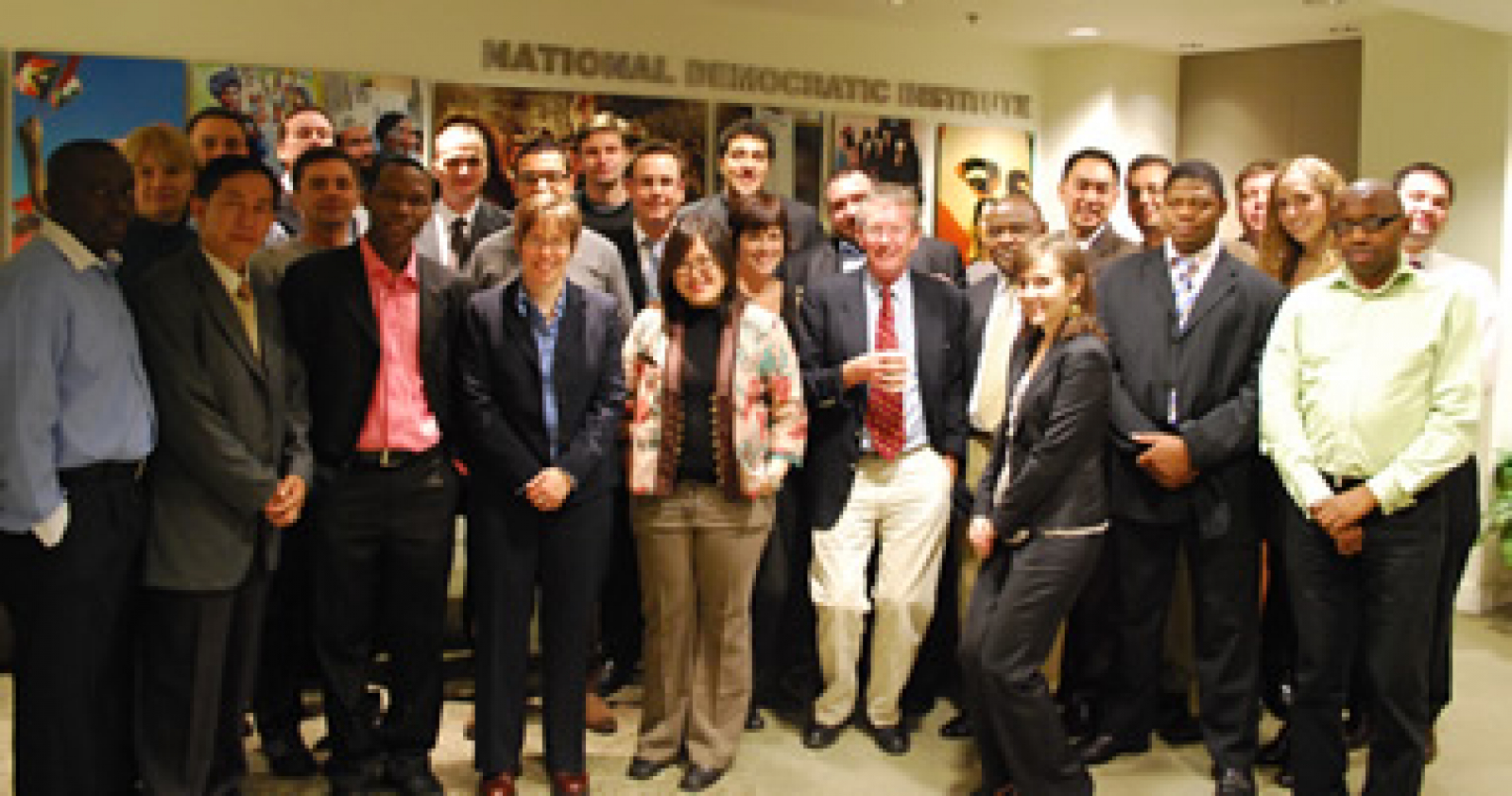
SHARE
Parallel vote tabulations (PVTs), a powerful citizens' tool to analyze the integrity of voting and counting processes as well as the accuracy of official election results, were the subject of a "PVT Academy" held at NDI's Washington office Nov. 17-20. Some 23 participants from 17 countries, all experienced in conducting PVTs, came together to share expertise and harmonize best practices.
The participants — from Africa, Asia, Central and Eastern Europe, Eurasia, Latin America and the Middle East — included leaders from citizen groups who have joined NDI in conducting PVTs, NDI staff and consultants who are PVT experts. They came together to share lessons learned and explore nuances in PVTs, which demand precision in training, communications, analysis and reporting. The result was an increase in core capacities and a strengthening of the network that NDI has used in more than 20 years of working with democracy activists in conducting PVTs.
NDI's director of election programs, Patrick Merloe, noted that PVTs have been critical in raising citizen confidence in honest and accurate elections (e.g., Ghana's closely contested 2008 presidential election and Montenegro's 2006 independence referendum), preventing electoral fraud (e.g., Zimbabwe's 2007 and Peru's 1999 first round presidential elections, where runoffs were scheduled largely as a result of PVT findings), and exposing fraud and significant misfeasance (e.g., Georgia's 2003 parliamentary elections).
"As part of broader election monitoring efforts, PVTs play an important role in citizens mobilizing for accountability and electoral reform." Merloe said.
NDI has provided technical assistance to more than 100 PVTs in over 30 countries and is receiving increasing calls for assistance as the impact of PVTs on promoting electoral integrity is becoming more apparent. In countries as varied as Indonesia, Mexico, Croatia and Ghana, PVTs are now part of the electoral culture. The skills, organizational capacities and networks developed in conducting PVTs have proven to be critical building blocks for further citizen participation, governmental accountability and advocacy efforts beyond elections in many countries, Merloe said.
A PVT involves deploying trained nonpartisan monitors to a statistical sample of often thousands of polling stations who rapidly report their findings. The monitors report on their direct observations of targeted aspects of the voting, counting and tabulation processes, including vote counts at their assigned locations. They evaluate qualitative aspects of election day processes that are essential to assessing electoral integrity and developing statistical projections of what honest results should be within narrow margins of error. Monitors record the information on standardized forms and communicate their findings to a central point. The quality of the data is evaluated and the findings are analyzed to produce accurate and timely characterizations of the election day processes, including the integrity of the official election results. The findings are then reported to the public along with recommendations concerning the election process.
Merloe said the academy participants agreed to redouble efforts to ensure the accuracy, impartiality and timeliness of PVTs, employing new communications technologies and sharing information with electoral authorities, political contestants and the public to reinforce citizen ownership of elections and electoral integrity and to ensure peaceful elections.
Pictured above: The participants of the PVT Academy in Washington, DC.
Published on November 20, 2009


